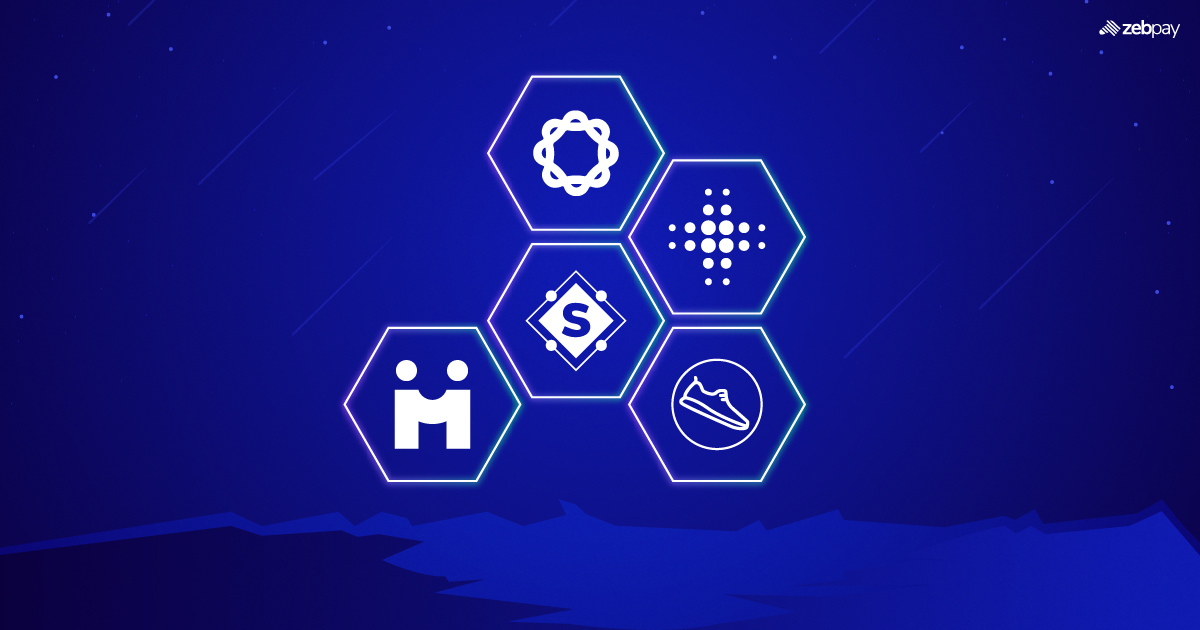Did you know that crypto is making its way into the healthcare industry? Blockchain in healthcare can assist and promote general health and well-being. While some healthcare cryptos offer better access to patient records and hospital systems, others reward you for living a healthy lifestyle.
Medical crypto can be better than traditional options, through alternative financing or insurance. Whether you want a crypto asset to invest in or include it in your daily life, we have you covered.
1. Medicalchain (MTN)
The MedicalChain project is developing a platform based on the Ethereum blockchain. It allows users to store their medical data on a medical blockchain and grant data access to medical professionals.
Any interactions with the data are recorded and maintained securely. During this process, patient privacy is protected. Medicalchain is also creating a platform for other providers to develop on. This allows for innovations in user experience and a wider reach of the platform.
Medicalchain is currently developing two applications – a digital consultation application and a health data market. The first one allows users to consult a doctor remotely for a small fee. The marketplace allows users to sell their medical data to medical researchers. This gives users data ownership and allows them to benefit from their data sale.
Medicalchain’s token is called MedToken (MTN). The total supply is 500 million MTN, with a market cap of almost $540,000 at the time of writing.
2. Step
Step is a fitness application that rewards you for the number of steps you take. The project provides users with a way to follow a healthier lifestyle and be paid for the same. A maximum of 30,000 steps a day are eligible for rewards.
Step is deployed on the Binance Smart Chain. It also allows users to mint NFTs that can be resold on OpenSea. Additionally, Step operates on a proof of stake system which makes it possible for users to stake the crypto and earn passive income. The team states that $4 million worth of Step has already been staked by users.
This health token is available to buy on many exchanges, with a total supply of 1 billion tokens. To get started on the Step platform, you must hold at least 22,000 tokens or a Step NFT. This is a security measure that reduces the possibility of price manipulation.
3. MediShares (MDS)
MediShares is a project on the Ethereum blockchain. It operates on a Mutual DAO system, where DAO is a Decentralised Autonomous Organisation. It allows users to participate in a mutual insurance marketplace. There is a very low barrier of entry, as anyone can become an insurer.
It bridges the gap in the insurance markets, which have high premiums. The main use cases of this application are –
- Mutual aid contracts for serious disease – The platform already has 9 million mutual aid users.
- Mutual aid contracts for anonymous disease – In some countries, declaring an illness can cost you your job. In this case, mutual aid insurance allows you to protect your personal information.
- Contracts for high-risk activities – Activities such as diving and racing are underinsured due to high premiums. Mutual aid provides an alternative to the out-of-reach, traditional means.
The MediShares token, MDS has a total supply of 2 billion MDS. It currently has a market cap of almost $310,000.
4. SOLVE
Similar to MedicalChain, SOLVE provides a decentralised healthcare platform. It tokenizes your identity, allowing for more anonymity options. It reduces the risk of data breaches, as your data is not stored in a hospital’s system.
The platform helps you retain ownership of your data. It also makes it easier to give or revoke consent for data. Finally, it makes healthcare transactions seamless and protected with no intermediaries in the payment process.
The SOLVE token is based on the Ethereum blockchain and has a fixed supply of 1 billion SOLVE. The token has a market cap of $11.9 million at the time of writing.
5. Humanscape(HUM)
Humanscape is a patient network on the Ethereum blockchain. It allows institutions and researchers to obtain Patient-Generated Health Data(PGHD), which is limited in the healthcare field. Most data is currently generated in a hospital. It is difficult for a third party to gain access to full records for research purposes. This becomes a problem when rare and chronic diseases cannot be studied. If extensive data is available to researchers, they can make great strides in improving our understanding of illnesses.
This is where the Humanscape project comes in. It allows patients to track their health-related data. This data can then be traded with researchers and institutions to better understand rare and chronic diseases. Patients are then rewarded by the platform for providing their data.
Humanspace has a total cap of 50 Billion HUM. With almost 800 million HUM in circulation, It currently has a market cap of $140 million, one of the highest in the healthcare crypto space.

